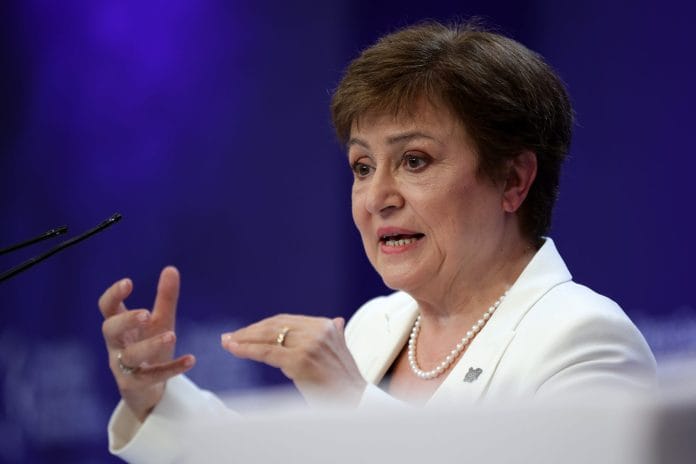The IMF and World Bank warned yesterday about the economic risks stemming from the Gaza conflict and attacks on shipping in the Red Sea.
The ongoing Israel-Hamas conflict, which began in October, has already had significant repercussions on the economy of the Middle East and North Africa region, according to Kristalina Georgieva, the Managing Director of the International Monetary Fund (IMF).
Speaking at the World Governments Summit in Dubai, Georgieva emphasised that the longer the conflict persists, the greater the potential impact it could have on the global economy.
“I fear most a longevity of the conflict because, if it goes on and on, the risk of spillover goes up,” she said.
Additionally, Georgieva highlighted concerns about the prolonged conflict’s potential spillover effects, particularly on the Suez Canal, as Yemen’s Iran-backed Huthi rebels have attacked Red Sea shipping leading to the crucial maritime passage.
The Huthis claimed they are targeting shipping they perceive as Israeli-linked in support of Palestinians in Gaza. This has compelled some cargo carriers to opt for longer and costlier routes to evade potential attacks.
Last month, the UN Conference on Trade and Development cautioned that commercial traffic passing through the Suez Canal had dropped by over 40 percent in the preceding two months.
Georgieva said that if there are other “consequences in terms of where the fighting goes, it could be more problematic for the world as a whole”.
The Gaza Strip has endured significant Israeli military actions for more than four months, following a Hamas attack on southern Israel on October 7.
According to official Israeli figures compiled by AFP, Hamas’s attack led to approximately 1,160 deaths, predominantly civilians.
In response, Israel launched airstrikes and a ground offensive, resulting in at least 28,340 casualties, primarily women and children, as reported by the health ministry in the Hamas-controlled territory.
Despite the war-related uncertainties, Georgieva said the IMF is “very confident that the world economy is now poised for this soft landing we have been dreaming of”.
“I expect to see by mid-year interest rates going in the direction inflation has been going for the last year now,” she said, when asked about interest rates being cut in leading economies.
Also speaking at the summit, World Bank President Ajay Banga said that “what’s going on Gaza, but also the challenges of Ukraine… and the Red Sea” are among the top challenges to the global economic outlook.
When “you add these variables to what is already turning out to be probably the lowest growth of the last 35, 40 years…that’s something we’ve got to keep a close eye on,” he said.









